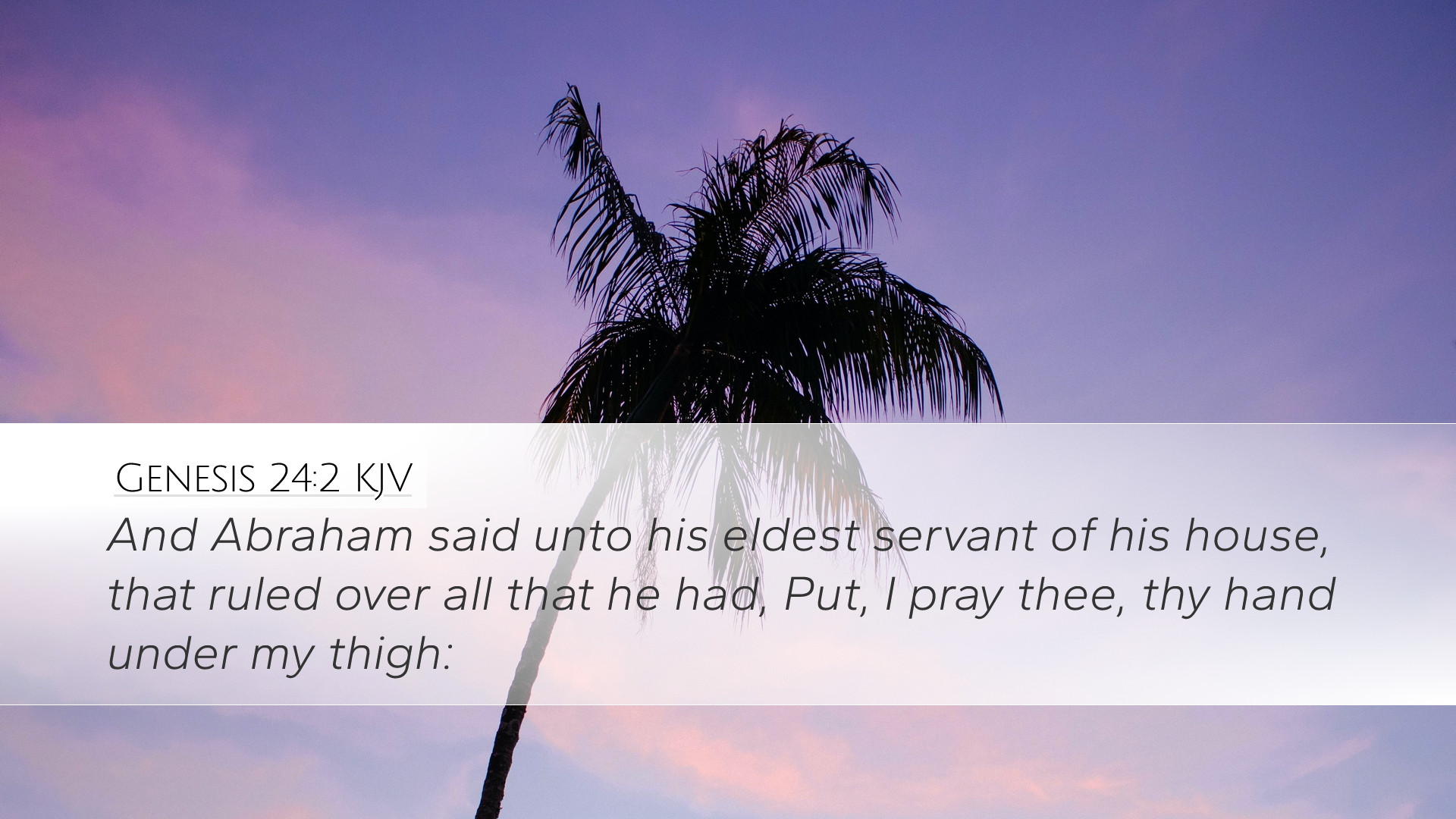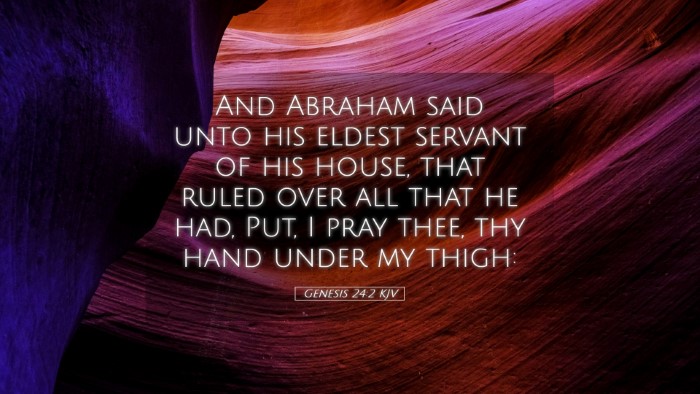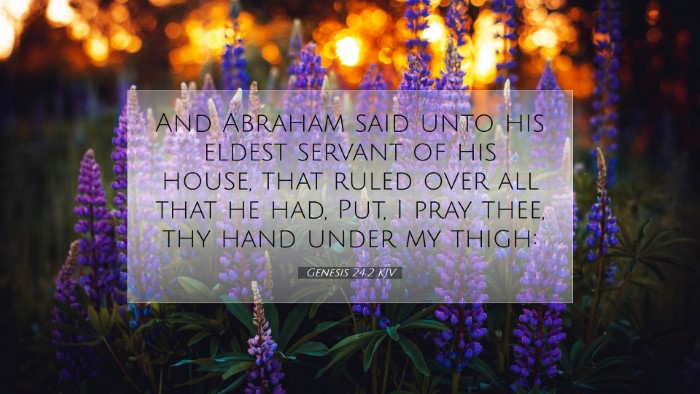Commentary on Genesis 24:2
Verse: "And Abraham said unto his eldest servant of his house, that ruled over all that he had, Put, I pray thee, thy hand under my thigh."
Introduction
Genesis 24:2 marks a significant moment in the Genesis narrative, focusing on Abraham's quest to secure a suitable bride for his son Isaac. This passage offers profound theological insights as well as practical implications for faith, duty, and divine guidance. The commentaries from Matthew Henry, Albert Barnes, and Adam Clarke provide insightful perspectives on this verse.
Contextual Background
Before diving into the specific commentary on the verse, it is essential to understand the context of Genesis 24. Abraham, after receiving God's promise, is wary of the continuity of that promise through his son Isaac, particularly in ensuring that Isaac does not marry a woman from the Canaanites, but rather from his own kin.
The Role of Abraham's Servant
Abraham's servant, entrusted with a crucial task, symbolizes obedience and faithfulness. He is described as the "eldest servant," indicating both a position of trust and significance within Abraham's household. This depiction highlights the importance of choosing faithful individuals to carry out God's plan.
Verse Analysis
Leadership and Authority
Abraham's command to his servant illustrates the hierarchical structure within the household and Abraham's authority. The phrase "that ruled over all that he had" demonstrates the servant's significant role. According to Matthew Henry, this can be seen as a model for pastoral authority, where leaders delegate responsibilities while encouraging diligence among their subordinates.
Cultural Significance of the Oath
The act of placing a hand under Abraham's thigh is symbolic. Albert Barnes notes that this gesture signifies a serious and binding oath, reflecting the ancient Near Eastern customs surrounding covenant making. The seriousness of the task indicates the weighty implications of ensuring the covenant promises of God are fulfilled in successive generations.
The Element of Prayer and Divine Guidance
In his commentary, Adam Clarke emphasizes that this moment exemplifies the centrality of prayer in decision-making processes for Christians. Abraham’s instructions to the servant underscore a reliance on God to guide the process of finding a suitable wife for Isaac. This builds an important foundation for faith by showing that even significant life decisions should be approached with prayerful consideration.
Theological Implications
Continuity of the Covenant
This verse reflects the importance of faithfulness to God's promises through generations. Abraham's concern for his son's marriage highlights the idea that familial and marital choices should align with God's covenantal expectations. As noted by Henry, this passage encourages the careful selection of partners based on shared faith and covenantal community.
Servanthood and Mission
The servant's willing obedience serves as an archetype for Christian discipleship. The act of serving aligns with New Testament teachings of humility and dedication. Barnes points out that all believers are called to be servants in seeking God's will, fostering a sense of mission and responsibility in the context of their community.
Practical Applications
This passage has numerous applications for modern readers, especially pastors and students of theology.
- The Importance of Faithful Leadership: The role of leaders in the church today reflects that of Abraham, who chose trustworthy individuals to fulfill specific God-given tasks.
- Engagement in Prayer: This passage encourages individuals to immerse themselves in prayerful discernment when faced with critical life decisions, mirroring Abraham's reliance on God's guidance.
- Covenantal Relationships: The significance of choosing life partners in alignment with one's faith is a clear takeaway. This aspect remains highly relevant in today's discussions about marriage and family.
Conclusion
The narrative of Genesis 24:2 serves not only as a historical account but as a profound theological reflection on obedience, covenantal fidelity, and the importance of divine guidance in significant life decisions. As believers continue to navigate their journeys, the lessons from this passage remain invaluable. Pastors, students, theologians, and Bible scholars alike can draw rich insights from the traditions of biblical interpretation provided by Henry, Barnes, and Clarke, encouraging a deeper engagement with the text and its implications for faith and practice.


